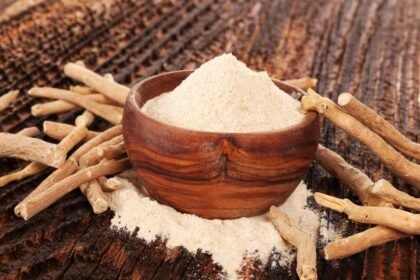When it comes to our health, we often prioritize our heart and stomach, paying little attention to a critical organ that impacts both body and mind: the liver.
The liver works tirelessly, quietly performing essential tasks like detoxification, nutrient processing, and supporting digestion. However, when overburdened, it sends subtle yet vital signals indicating it needs help.
Let’s delve into six key signs of a toxic liver, why they occur, and practical ways to restore its balance.
1. Constant Tiredness
Do you often feel exhausted even after a full night’s sleep? Persistent fatigue could be a sign that your liver is overwhelmed.
When the liver is loaded with toxins, it struggles to efficiently filter blood, process nutrients, and eliminate waste. This inefficiency leads to reduced energy levels. According to research, fatigue is one of the most common symptoms of liver dysfunction.
How to Help:
- Incorporate foods like avocados, walnuts, and garlic into your diet to support liver detoxification.
- Stay hydrated to help the liver flush out toxins more effectively.
2. Skin and Eye Discoloration
In many traditional healing systems, the skin is seen as a mirror of internal health. One visible sign of a stressed liver is the yellowing of the skin and the whites of the eyes, a condition known as jaundice.
This occurs when the liver cannot process bilirubin, a waste product from the breakdown of red blood cells.
How to Help:
- Drink beetroot juice once a week. Beetroot is rich in antioxidants and supports liver detoxification.
- Avoid processed foods and alcohol, which can exacerbate liver strain.
3. Bloating and Digestive Issues
Feeling constantly bloated or gassy? Your liver plays a key role in digestion by producing bile, a substance that helps break down fats and absorb nutrients. Insufficient bile production can lead to digestive discomfort.
How to Help:
- Start your day with warm lemon water. This simple remedy stimulates bile flow, aiding digestion and gentle liver cleansing.
- Add fiber-rich foods like oats, lentils, and chia seeds to your meals for better digestion.
4. Mental Fog
Have you experienced moments where your thoughts feel scattered, or you struggle to concentrate? This “brain fog” may stem from liver toxicity. When the liver is overwhelmed, toxins can circulate in the bloodstream, affecting mental clarity.
How to Help:
- Practice deep breathing exercises for five minutes daily. Breathing deeply increases oxygen intake, helping your liver flush out toxins.
- Consume turmeric, which contains curcumin, a compound known for its liver-supporting and anti-inflammatory properties.
5. Changes in Urine and Stool Color
The liver’s imbalance can manifest through changes in the color of urine and stool. Dark urine and pale stools often indicate that bile production or flow is impaired.
How to Help:
- Add leafy greens such as spinach, kale, and arugula to your diet. These foods help alkalize the body and enhance bile production.
- Include foods rich in sulfur, like onions and broccoli, which promote detoxification.
6. Emotional Swings
The liver is not only a physical organ but also an emotional powerhouse. In metaphysical terms, it is often referred to as the seat of anger. Overburdened livers can lead to emotional instability, irritability, or frequent mood swings.
How to Help:
- Practice mindfulness techniques like meditation or yoga to release emotional stress.
- Include foods like almonds and flaxseeds, which provide essential fatty acids for hormonal and mood regulation.
Practical Tips to Nurture Your Liver
To maintain liver health and prevent toxicity, adopting the following habits can make a significant difference:
- Stay Active: Regular physical activity promotes blood circulation and reduces fat accumulation in the liver. Aim for at least 30 minutes of moderate exercise daily.
- Avoid Harmful Substances: Limit alcohol consumption and reduce exposure to environmental toxins like pesticides or household chemicals.
- Eat Liver-Friendly Foods:
- Cruciferous Vegetables: Broccoli, cauliflower, and Brussels sprouts enhance detoxification enzymes.
- Citrus Fruits: Oranges, lemons, and grapefruits are high in vitamin C, which supports liver repair.
- Herbs and Spices: Dandelion root, milk thistle, and ginger have long been used to support liver function.
- Hydrate with Purpose: Replace sugary beverages with herbal teas like green tea or chamomile, which have liver-cleansing properties.
- Rest and Rejuvenate: The liver regenerates best during rest. Ensure you get 7–8 hours of quality sleep each night.
Listen Your Body’s Signals
Our body is a finely tuned system, constantly communicating with us through symptoms and sensations. When you feel tired, bloated, unfocused, or irritable, don’t dismiss these as everyday inconveniences. They might be your liver’s way of asking for support.
By paying attention to these signs and adopting liver-friendly habits, you can enhance your overall health and well-being. Remember, your liver works tirelessly for you; it’s time to return the favor with love, patience, and care.
Stay healthy and let your liver thrive—because true wellness is in your hands.












